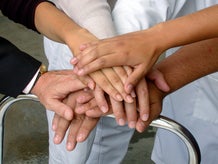Caribbean countries have one of the world’s highest dependency rates on fossil fuels for energy. The IDB is helping the development and funding of programmes to improve domestic energy efficiency and support diversification towards renewables (Liquefied Natural Gas, wind, solar, geothermal, and wave power). By introducing newer and more efficient sources of energy, a more competitive environment for business can flourish. For a very long time, the U.S. and the Caribbean have taken strides together that supported their mutual development. Last June, a new chapter of cooperation was unfolded with the passage of the United States-Caribbean Strategic Engagement Act 2016. The areas of engagement of the Act are central to the dialogue on development in the Caribbean and complement the work of the Inter-American Development Bank (IDB) in the energy and private sector, as well as in citizen’s security. Before going forward, it is important to reflect upon what has already been tried and accomplished on these challenges.
Following that thread, years of an adverse environment have left the private sector dominated by small, old, non-innovating and non-exporting firms. The IDB has supported the dialogue between the public and private sector by funding the first set of firm-level data, the Compete Caribbean Program, to truly understand their characteristics. Furthermore, the Bank has been enhancing and financing solutions that promote competitiveness and reduce red tape.
On another important front, high crime rates are a serious obstacle for economic growth and sustainable development. They erode confidence in government, reduce the competitiveness of industries and services; negatively alter the investment climate, contribute to emigration and lead to the loss of skilled educated citizens. The IDB is working with Caribbean governments to develop and fund national Citizen Security and Justice Programmes (CSJPs) in The Bahamas, Jamaica, Trinidad and Tobago and Guyana.
Without a doubt, the Act is a step forward to deepening the relations between the Caribbean and the United States, a multilateral supporter of the Bank’s work on development. It represents an opportunity for hitting the mark on development for the Caribbean, the chance for everybody to learn and do more together, to create vibrant economies and communities in the Caribbean, where people are productive, safe, and happy.
Shortcode Image Photo: Willie Heinz


Leave a Reply